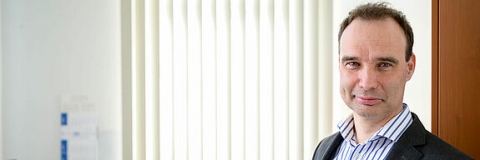CHALLENGES OF CLINICAL RESEARCH IN ALZHEIMER’S DISEASE

Sapienza Neuroscience Seminar Series in 2022: The seminar by Prof. Stefan Teipel Dear Colleagues of Sapienza Neuroscience, I kindly invite you and your coworkers to follow Prof. Stefan Teipel’s seminar entitled “CHALLENGES OF CLINICAL RESEARCH IN ALZHEIMER’S DISEASE”, scheduled on June 17, 2022, 09:00-10:00 a.m. CET (Italian time) at https://uniroma1.zoom.us/j/86356108351?pwd=WUs0TDdJbHQvS0kxUU1yMWJ0OVY2UT09ID meeting: 863 5610 8351 Please do not hesitate to forward this email to your contacts potentially interested in this emerging topic of clinical neurosciences. Yours sincerely, Claudio Babiloni Date, time schedule, and avenue of the webinar June 17, 2022, 09:00-10:00 a.m. CET (Italian time) Aula Luciani, Department of Physiology and Pharmacology “Erspamer”, Sapienza University of Rome (entrance “Sapienza Store” from Viale Regina Elena 334, Rome) Invited Speaker: STEFAN TEIPEL (Clinic and polyclinic for Psychosomatic and Psychotherapeutic Medicine, University of Rostock, Rostock, Germany) Talk title: CHALLENGES OF CLINICAL RESEARCH IN ALZHEIMER’S DISEASE The talkAlzheimer's disease (AD) is the most frequent cause of dementia in people > 60 years and represents a big challenge for public health with > 30 million patients worldwide.Prof. Stefan Teipel’s talk will guide us into the current standards of AD diagnosis, treatment, care, and prevention with a translational journey from the most advanced research frontline to clinical practice.He will illustrate how cerebrospinal fluid (CSF) and positron emission tomography (PET) measures of cerebral amyloidosis and tauopathy allow the neurobiological diagnosis of AD even before dementia (prodromal stage), while structural magnetic resonance imaging (MRI) and FDG PET may track the neurodegenerative process over time. Those biomarkers provide useful endpoints for treatments aimed at slowing the AD course.Prevention mainly targets modifiable dementia risk factors such as unhealthy lifestyle, cardiovascular-metabolic and sleep-wake cycle abnormalities, and mental disorders. A major challenge for the future is telemonitoring in those modifiable risk factors in the real world. Can new technical assistance systems make the stay of patients with dementia in hospitals easier for both parties? How can the values of security and surveillance be combined with the right to patient autonomy and freedom?Prof. Stefan Teipel is a key neuroscientist in the field of neuroimaging biomarkers and new technologies for AD patients and knows the answers. The seminar will be also offered via zoom athttps://uniroma1.zoom.us/j/86356108351?pwd=WUs0TDdJbHQvS0kxUU1yMWJ0OVY2UT09ID meeting: 863 5610 8351 Prof. Stefan Teipel’s short CVhttp://cpr.uni-rostock.de/resolve/id/cpr_person_00002291https://www.dzne.de/en/research/research-areas/clinical-research/research-groups/teipel/research-areasfocus/ Prof. Stefan Teipel completed his MD from the University of Munich in 1998, he obtained a residency in Psychiatry in 2007 and became a full Professor of Clinical-Experimental Psychiatry and Clinical Dementia Research in 2008 and 2016, respectively (University of Rostock).At the University of Rostock, he is Deputy site spokesman of the DZNE (German Center for Neurodegenerative Diseases) center from 2009-onward and Head of the Gerontopsychosomatic and Dementia Section at the Clinic for Psychosomatic and Psychotherapeutic Medicine since 2013-onward.He holds a large national research group focusing on clinical, neuroimaging, advanced data science methods/technology, and preclinical research in dementia. He develops research with an uncountable number of research groups worldwide and has several commitments on the boards of several journals of clinical neurosciences and neuroscientific societies. He has published more than 400 peer-reviewed papers and several teaching books and chapters and was invited to present his research in hundreds of international scientific symposia. Prof. Stefan Teipel is a key neuroscientist in the field of neuroimaging biomarkers and new technologies for AD patients and knows the answers.

